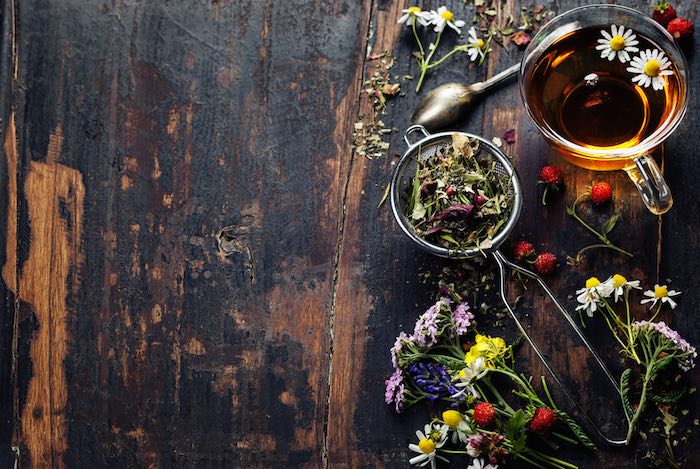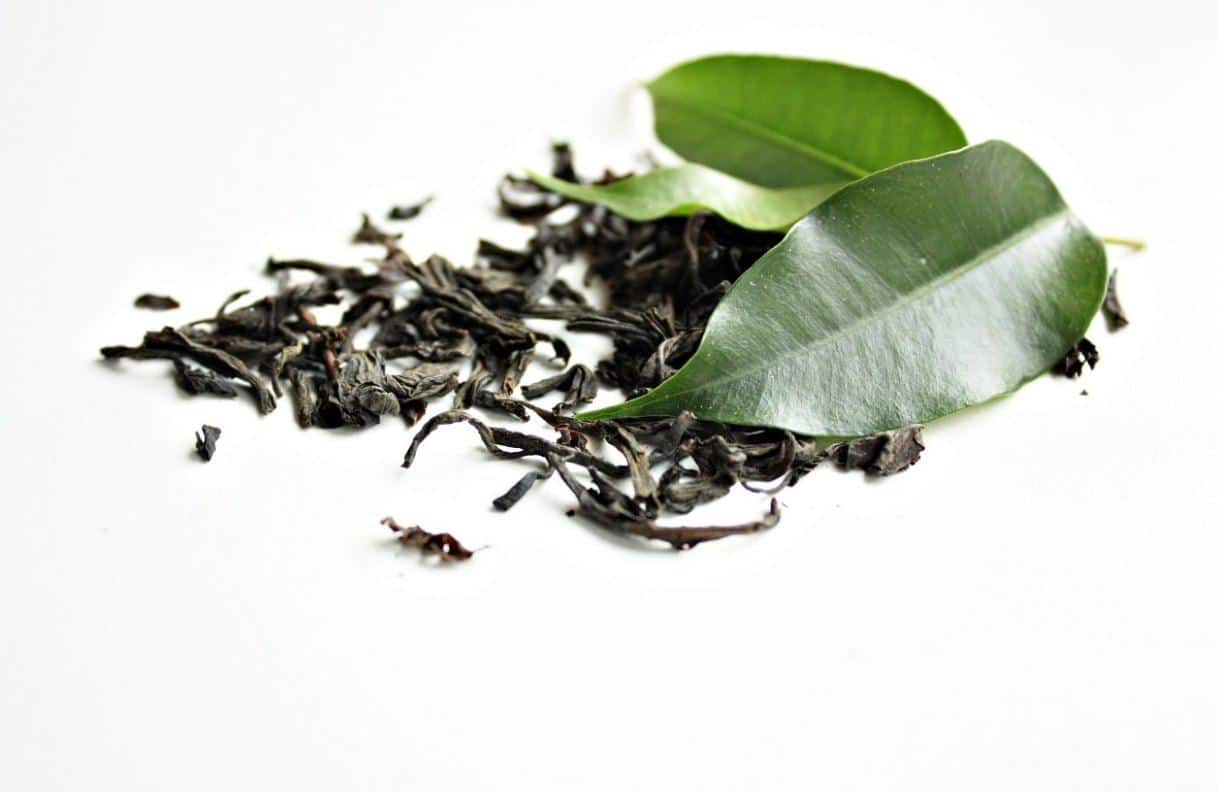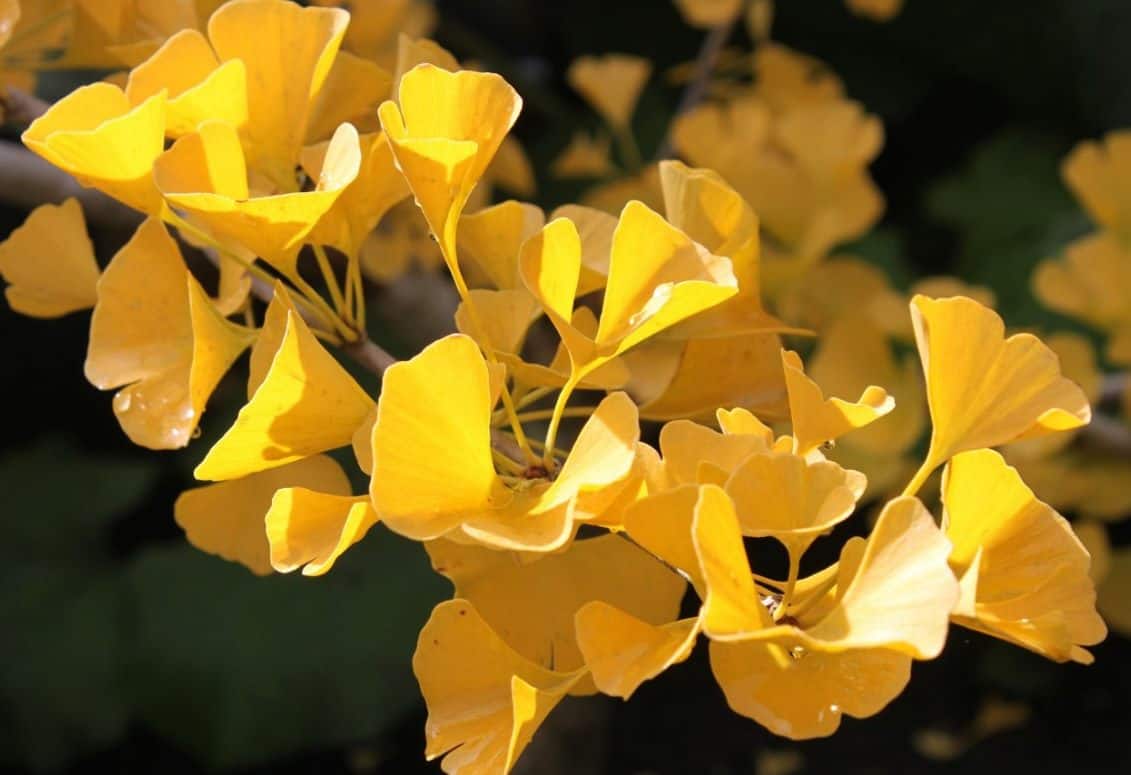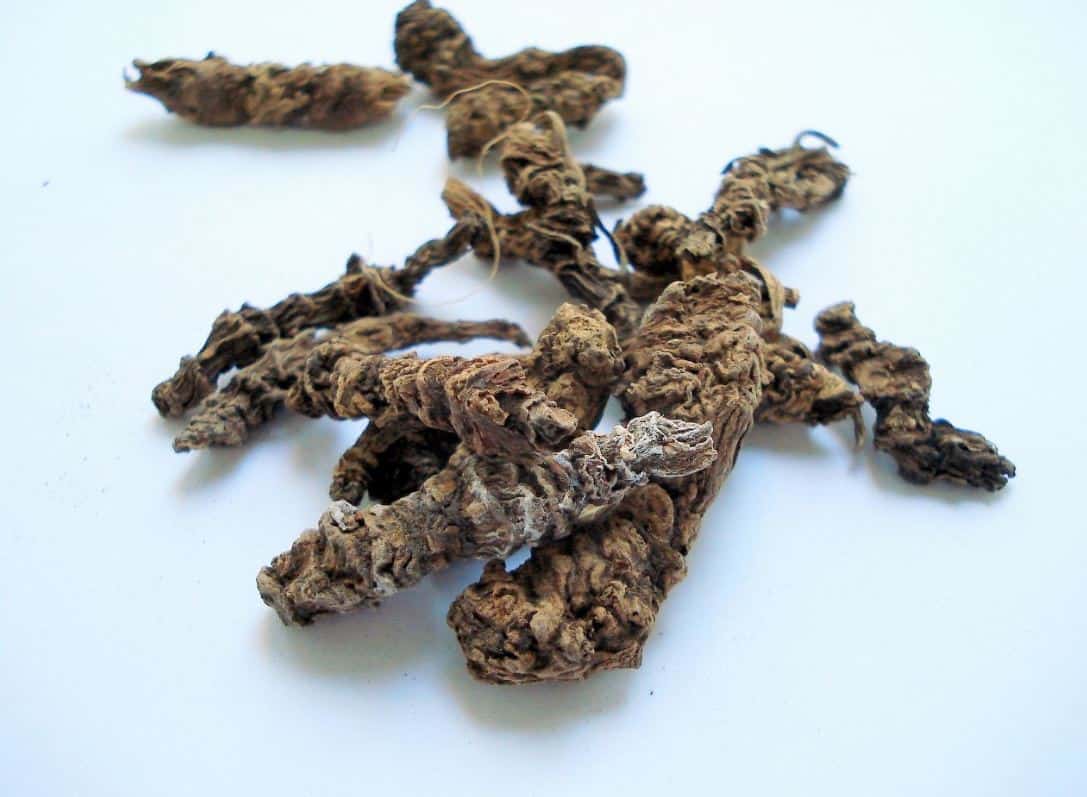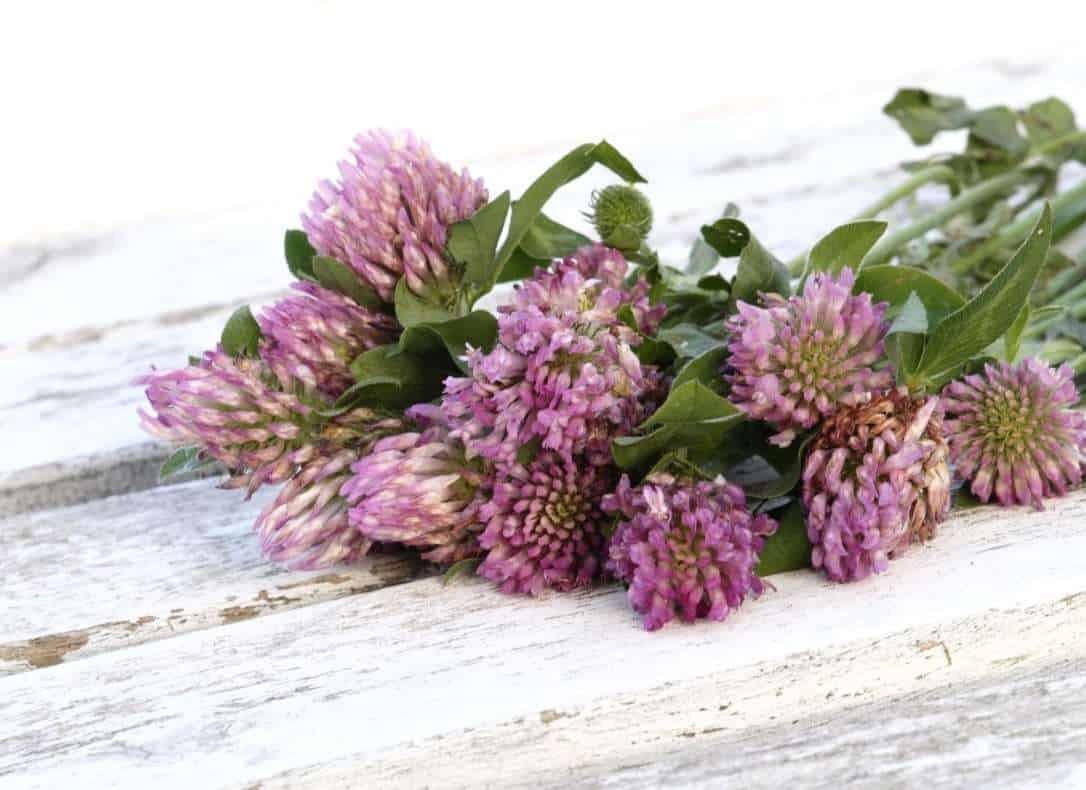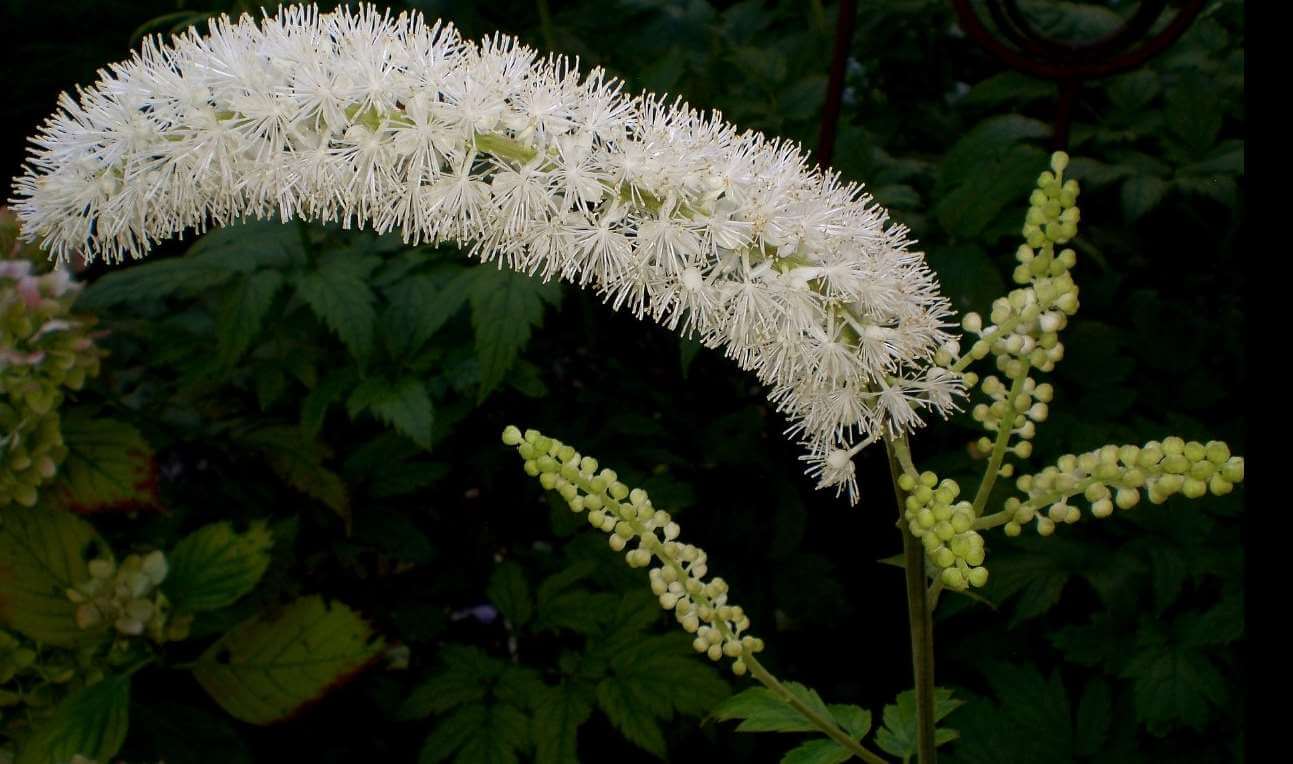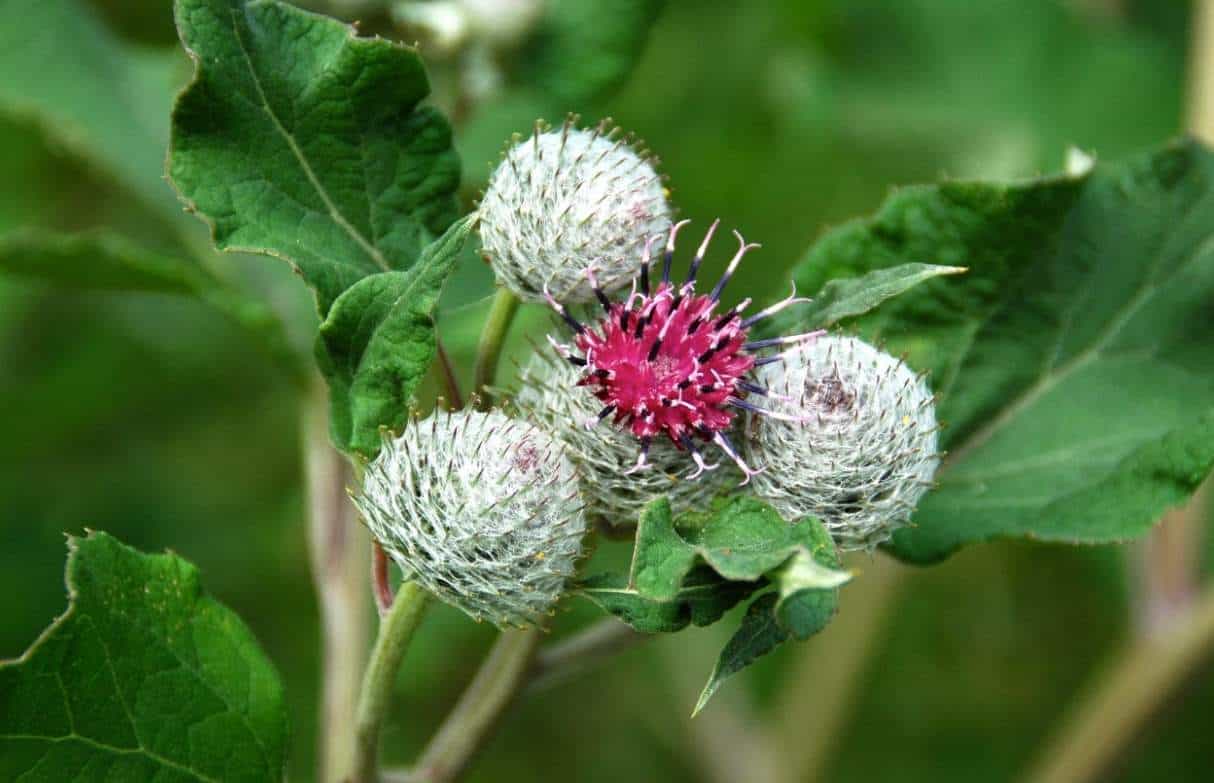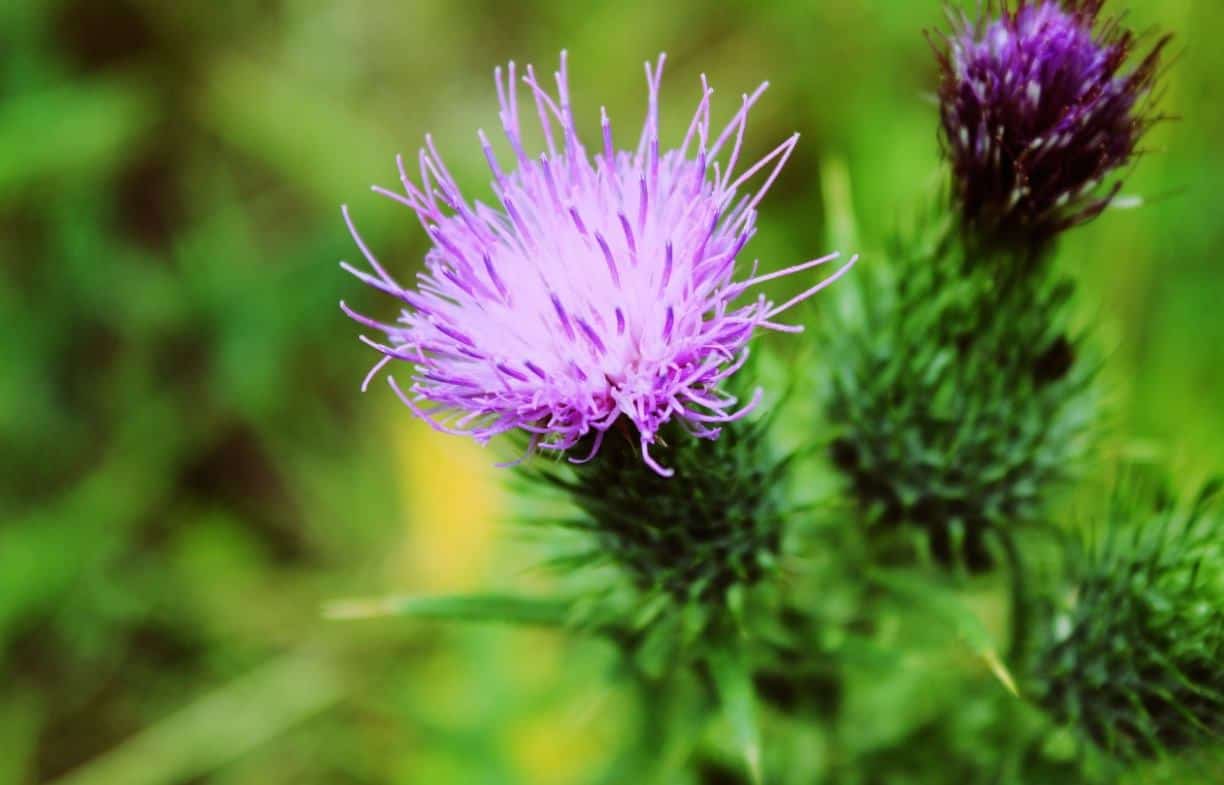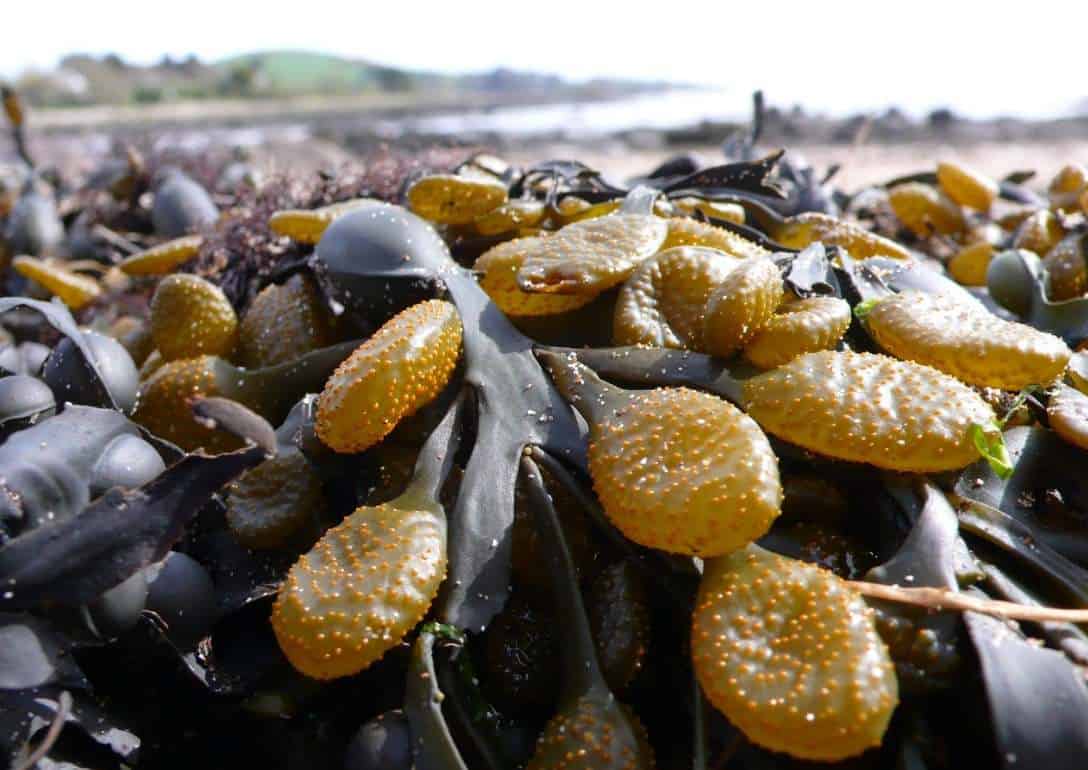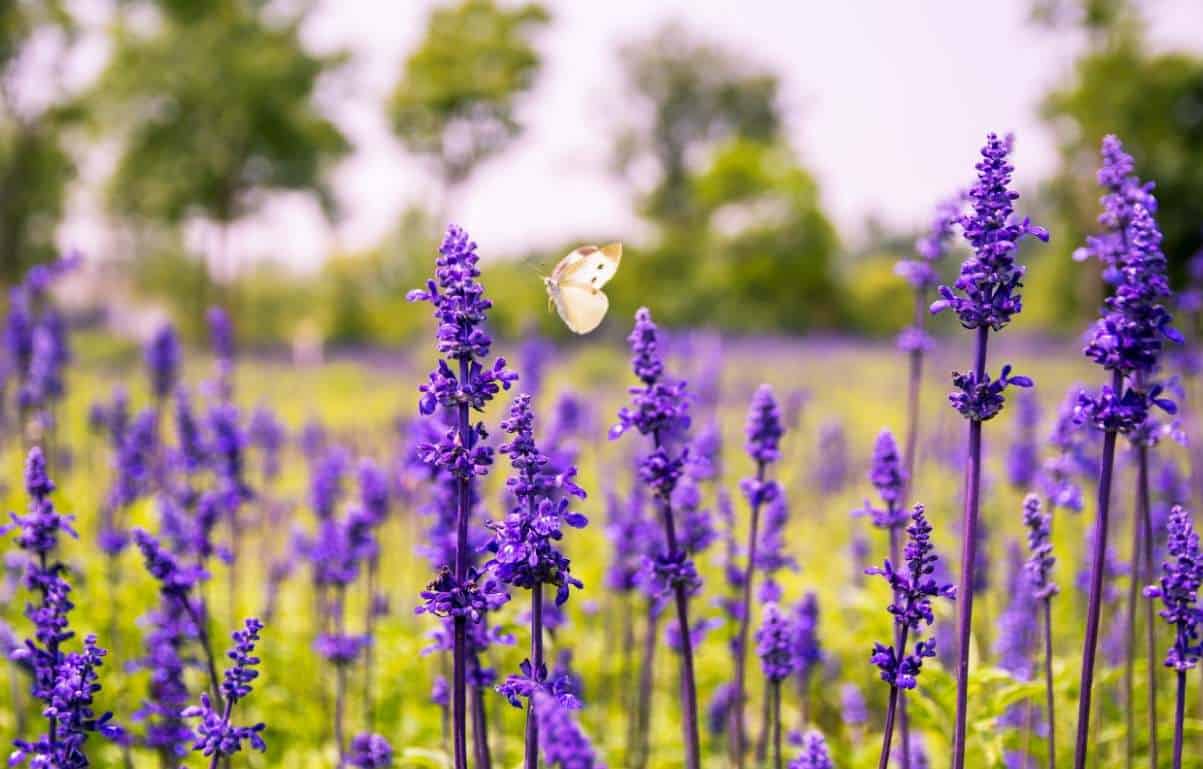Best Herbs for Menopause: 21 Natural Choices
Why choose plants and herbs for menopause instead of classic HRT? One thing’s for certain, if you take the alternative route or choose to balance both, you won’t be alone.
“Up to 75% of women use herbal and complimentary medicines to treat their postmenopausal symptoms.” – Iris Tong, Director of Women’s Primary Care at the Women’s Medicine Collaborative
There are so many natural menopause treatments out there though! Let’s see what people are saying about some of the herbal products you’ll find in the health food section.
Dr Maura McGill:
Are These the Best Herbs for Menopause?
Natural menopause treatment comes in many shapes and forms. Here are 21 of the herbal options you may have seen around – some remedies are recommended only by centuries of traditional use, others have been put to the test and come out on top.
Dr Tori Hudson talks herbs, chemicals and how to find the right herbal remedy for you:
#1 Wild Yam
Does it work? Is it a fraud? I’ve come across vehement arguments for both sides – so what’s the story?
The inedible herb, Mexican wild yam, is thought to boost your body’s progesterone – in other words, balance out those shifting hormone levels that cause so many unwanted symptoms.
Now here’s the complication that’s damaging wild yam’s reputation, and I’ve got to say, I’m disappointed to hear it…
A three month study didn’t see any real effects from wild yam cream after three months. And other analysis by those in the know, suggests its claims to help with hot flashes and other menopausal problems aren’t substantiated.
Wild Yam Capsules for Menopause
Wild yam contains a compound called diosgenin. The link will show you both benefits and side effects of it. If you were interested in taking wild yam capsules for menopause, Amazon’s choice seems like a good fit. See what you think.
#2 Alfalfa
Alfalfa is recommended as a menopause treatment by some herbal specialists. The reason? Like some of the other herbs on the list, it’s rich in phytoestrogens. It’s thought to balance cholesterol levels too – good to know.
Vitamin K is also found in the plant and according to Dr Axe, gives alfalfa sprouts the ability to ease menopause symptoms. It’s also claimed that the same vitamin can help prevent osteoporosis. And alfalfa’s another kitchen-based remedy that’s said to hold antioxidant powers.
Alfalfa Capsules for Menopause
Good source of minerals, vitamins and chlorophyll. Alfalfa for this product is grown in the United States.
#3 American Skullcap
According to Penn State Hershey, American skullcap has been used for anxiety, depression and nervous tension for two hundred years.
So it follows that this strangely-named herb is thought to relieve anxiety brought on by the menopause – and that’s actually very interesting, because this is one symptom not everybody talks about.
American skullcap is also said to contain antioxidants to lift your health levels and fight free radicals, according to the University of Maryland Medical Center.
But they warn that it can interact with medications like sedatives, meaning that this herb might be off the cards for some women (as always, check with your doctor and seek advice on the best remedies for your own situation).
Scullcap Capsules for Menopause
Here’s Nature’s Way Scullcap Herb.
#4 Super Soy?
Another hot flash hero? It’s thought that soy could help with uncomfortable symptoms thanks to its phytoestrogens and isoflavones, with some studies showing it could make a real difference to hot flashes. Here’s what Science Daily has to say:
Research has shown a reduction in hot flush symptoms with soy ranging from 20 – 55%.
And a 2012 Chinese study found real evidence for soy’s anti-osteoporosis powers as well, saying that “soy isoflavones significantly increased the bone mineral density by 54%” (link here).
Opinions are divided, though – in particular, there’s controversy around whether breast cancer sufferers and survivors can safely consume it.
And with soy available on supermarket shelves, health food and import stores in every form imaginable, Oregon State University’s Linus Pauling Institute warn that monitoring your consumption isn’t necessarily easy.
They suspect different processing methods and added ingredients can affect isoflavone levels. And that makes it hard to know what nutrients you’re really getting, either more or less than you’d want to consume if you knew the numbers.
They’ve rounded up the arguments and evidence here. Take a look, see what you think.
#4 Phytoestrogen-Packed Flaxseed
The phytoestrogens in flaxseed have long been thought to aid women’s experiences of the menopause – actually, in one study the flaxseed treatment trumped HRT.
According to Canadian herbal medicine consultant Dr. Carolyn DeMarco, this foodie remedy is comparable to soy, and offers all manner of benefits.
“Two tablespoons of flaxseed will equal two servings of soy per day and this is good for menopausal symptoms like hot flashes, breast cancer prevention and even bone loss.”
Dietitian Christine Marquette claims this natural solution could also help your heart health by bringing down high blood pressure – and that it could help with conditions that aren’t strictly menopause-related but go hand in hand with ageing, like arthritis.
Flaxseed Oil Capsules for Menopause
This is high lignan flaxseed oil, certified organic with added Vitamin E to prevent oxidation. Flax grown in Alberta, Canada – the company claims that the cool, northern latitudes produce superior flaxseed oil (high in the omega-3 fatty acids). We like the sound of that.
#6 The Arctic Secrets of Rhodiola
This Arctic herb’s origins conjure up all kinds of inspiring images. Rhodiola only grows at high altitude around Russia and China, and until fairly recently this traditional remedy was unknown outside the regions.
But there’s a chance that rhodiola is more than just a secret folk remedy. It was actually studied in China fairly recently, and the results seem pretty favourable – here are the details.
So what does it actually do? According to naturopathic specialist Dr Kate Rhéaume-Bleue ND, it’s a mood improving herb (so requires caution if you suffer from certain types of depression). But she also claims it can combat the adrenal fatigue that hits women hard.
“Most of the symptoms we associate with menopause are really caused by adrenal fatigue. Symptoms like fatigue, mild depression, low libido, foggy, unclear thinking and irritability” – Dr Kate Rhéaume-Bleue ND
Rhodiola Capsules from Amazon
500 mg, adaptogenic herb, 3% standardized extract, 60 vegetarian capsules from Now.
#7 Can Maca Root Give You More Energy?
This high altitude herbs comes from the Peruvian Andes, and in recent years it’s become one a talked-about menopause treatment. According to Examine, it’s got a history as a herbal remedy in its Peru, but it’s actually more usually treated as a food.
Maca root is thought to help balance hormones, which as we’ve heard is common among menopause remedies because so many signs are caused by changing hormones – though they report that effects in studies have been mixed.
But it’s not just recommended for women going through midlife – it’s also associated with mood and energy improving qualities for people of all ages.
A natural treatment for physical symptoms that’s energising too? Sounds interesting, and according to Dr Axe it’s not linked with nasty side effects unless you have an existing condition. As always, check out the full details and seek guidance.
Maca Root for Menopause
Organic, vegan capsules, peruvian Maca. Take a look at our choice below.
#8 Mood-Settling St John’s Wort
I’m fairly sure you’ve heard of this one, since it’s one of the more widely-known remedies. In natural medicine, St John’s wort has many uses but why is it associated with the menopause?
This herb is sometimes given to help settle the turbulent moods that come with those hormonal changes – and it turns out that if you’ve suffered from them, you’re not alone at all. I was startled by Healthspan’s research that most women may go through this:
“Up to 80% of women going through menopause can develop mild depressive symptoms, beyond the general malaise that may be attributed to insomnia and other symptoms” – Healthspan
Experts warn that this yellow-flowering herb can interact with medications and isn’t suited to sufferers of various conditions, including those taking antidepressants (as always, check out the full details).
St John’s Wort for Menopause
Saint Johns is great for promoting mental health as well as easing the symptoms that arise from depression as well as anxiety.
#9 Green Tea for Bone, Heart and All-Round Health
This lower-caffeine alternative to black tea has stood the test of time, and travelled from China and Japan to the rest of the world.
Several studies have shown that this relaxing drink could support bone and heart health, both big concerns for women that could impact your lifestyle for years to come. And according to experts it’s rich in polyphenols as well, making green tea a strong antioxidant.
You know what’s coming though, right? Those benefits come with a disclaimer, and some experts say you shouldn’t overdo it in case you encourage negative effects.
Green Tea for Menopause
This green tea helps with weight loss also which is good as we tend to put on weight as we get older
#10 Memory-Boosting Ginkgo Biloba
Ginkgo biloba comes from the tree of the same name. In fact, this species is one of the oldest in the world, surviving all kinds of environmental changes – and a ginkgo biloba tree can live for as long as a thousand years. Isn’t that amazing?
According to Medical News Today, ginkgo biloba can pass on some of its incredible powers in the form of a herbal remedy. Its flavonoids and terpenoids are said to fight free radicals, for one thing.
It’s also made a name for itself in the fight against memory loss – according to the Mayo Clinic, more research is needed but there’s a chance it could make a difference.
And it might even help with other worries that come as part of the ageing parcel, including anxiety, mood swings and one of the things I dread most, migraines (link here). Studies have shown that it can help with blood flow too.
Ginkgo Biloba for Menopause
The loss of memory can be a shock for some during menopause. Ginkgo has made a name for itself in the fight against memory loss.
#11 Banish Sleepless Nights with Valerian
Valerian video:
Has the menopause left you tossing and turning at night? This remedy has been in use for millennia, and I’m not speaking figuratively. Ancient Greek and Roman insomnia sufferers took valerian root instead of counting sheep – and this remedy is still used today.
Interestingly, it’s been put to the test with a recent Iranian clinical trial finding that 30% of participants did sleep better after taking the herb.
But hot flashes can strike any time, and according to some research valerian may be able to ease them too. And again, it’s all down to phytoestrogens which can help bring the balance back to your hormone levels, according to some experts.
Valerian Root for Menopause
Have your sleeping patterns changed after the menopause? Valerian root helps as it has a relaxing effect on the nervous system and helps promote relaxation.
#12 Sleep Better, Feel Better with Red Ginseng
This herbal remedy is thought to improve mood, and like valerian it’s often recommended to help with the insomnia that can come on during the menopause.
Just a case of mind over matter? Maybe not. A clinical trial of 72 women found that red ginseng seemed to help with menopause symptoms. But experts warn you shouldn’t take it for a long time.
That kind of advice always leaves me confused – what if it clears your symptoms right up and you have to stop taking it after a short while? I don’t have an answer, but it’s something to think about.
Red Ginseng for Menopause
Red ginseng for a natural boost of energy.
#13 Chinese Remedy Dong Quai
You might have heard this white-flowered plant called by the rather mystical name, Angelica root.
Available as a dried herb, powder or tincture, dong quai is a staple of Chinese medicine, with different healing properties attributed to different parts of the root – though you might be surprised to learn that it’s a member of the decidedly less exotic-sounding celery family.
It’s sometimes paired with black cohosh. Both herbal remedies are thought to help with menopausal symptoms but Healthline warn that both can have strong effects. As always, consult a professional for advice (and take extra care if you’ve got any other health considerations).
And take particular care – the University of Maryland warn that it can interact with other medications, herbs and supplements, including some that are commonly recommended for menopause.
Dong Quai for Menopause
Dong Quai to promote hormonal balance.
#14 Red Clover for Anxiety and Hot Flashes
You’ll find this traditional herbal remedy on its own and as part of numerous supplements. It’s versatile – you can find red clover in tea form too.
This little flower is traditionally used to purify, and it’s recommended by some herbal specialists for its phytoestrogens. According to some studies, it can also help ease menopause-related anxiety. So, does it work?
Here’s what the Victoria, Australia government have to say on the subject – and it looks like another mixed bag, but there’s some positivity in there too.
“Red clover may be useful for hot flushes. Other research concludes that there is insufficient evidence… Some limited research has shown that red clover can lower LDL-cholesterol (‘bad cholesterol’) and may have an effect on maintaining bone health.”
Red Clover for Menopause
This product is organically grown.
#15 Conquer Hot Flashes with Black Cohosh?
Red clover, a legume also containing estrogen, and black cohosh… have also been reported to ease postmenopausal symptoms. (link here)
Black cohosh is one of the more widely-known menopause herbs. This North American Indian remedy was adopted by 19th Century Americans and is still going strong today.
Plagued by night sweats and hot flashes? There’s a chance they could be eased by this member of the buttercup family. And so could mood changes brought on by the menopause, going by its traditional use.
According to the US Office of Dietary Supplements, several studies proved black cohosh to be effective in treating hot flashes specifically.
It’s not recommended if there’s a chance you could be pregnant, are currently breastfeeding or if you suffer from any liver problems, and Cancer Research UK don’t advise using black cohosh if you’re taking certain medications including some chemotherapy drugs, or have breast cancer.
Black cohosh also been linked to stomach discomfort and headaches in some users. So as always, be sure to read up about this herb and seek professional advice.
Black Cohosh for Menopause
A menopause complex that relieves hot flashes, night sweats and also good for the mood swings.
#16 The Secrets of Root Vegetable Burdock
Have you eaten burdock as a root veggie? It’s absolutely possible, and you’ll also find it in tea, tincture and powder form – take your pick!
Burdock is said to be cleansing and purifying. The University of Maryland point to its antibiotic and antioxidant properties – though they say that if you’re taking diuretics, blood-thinning meds or suffer from diabetes, give it a miss (link here).
Unfortunately, the University of Michigan say the evidence is patchy, with some studies showing burdock to reduce signs of menopause but not estrogen levels when combined with tinctures of licorice, burdock, dong quai, wild yam, and motherwort…
Other studies, however, didn’t show that it made any difference to hot flashes and other symptoms..
Root Vegetable Burdoch
Verified organic, it can be used in conjunction with the red clover mentioned above as well as dandelion and yellow dock.
#17 Detox with Milk Thistle
Milk thistle’s got plenty of cheerleaders. This herb is one of the longest-enduring on our list – it’s been in use since 300 BC (milk thistle is mentioned by Roman scholar Pliny the Elder), stuck around through the Middle Ages and is still doing the rounds today.
Can it help modern women with menopausal symptoms like hot flashes? According to some sources it might, and some sources claim it’s full of cancer-deterring antioxidants too.
A lot of resources I checked out highlighted the link between milk thistle and the liver, and it turns out this association is actually the reason why it’s promoted for women in later midlife.
Here’s how it works. According to clinical nutritionist Jacqui Justice, milk thistle “helps to clear out the toxins and nourish the organ” to combat “hormonal buildup”.
Milk Thistle for Menopause
#18 Kelp for Almost Everything
Can a type of calcium-rich wakame, kombu and bladderwrack seaweed ease your menopause symptoms? Sea kelp is thought to offer a whole host of benefits to women.
According to some herbal specialists, this wonder-weed can help with some of the changes that leave you feeling like you don’t look like ‘you’ anymore. It’s said that it can strengthen your nails and encourage healthy hair growth, and it can help beat water retention too. Check it out here.
There are also claims that the iodine in kelp can encourage your thyroid, which regulates your weight – experts advise you don’t overdo it though, as they suspect too much can have negative effects.
University of California, Berkeley researchers think sea kelp might even reduce your chances of developing estrogen-related cancers.
There’s got to be a downside, though, and here it comes. Kelp contains it in high levels – conversely, high sodium levels are associated with high blood pressure. Well, this certainly isn’t clear-cut.
Kelp for Almost Everything
#19 Ancient Grecian Remedy Agnus Castus
Agnus castus or chasteberry was once associated with Ancient Grecian maidens, who used it to honour the goddess Demeter. Today you can pick it up anywhere – no Athenian temple required.
Over the years it’s been associated with all manner of hormone-related issues, not just those affecting women in midlife. It’s thought to help balance hormones at the onset of the menopause, with black cohosh picking up where it left off further down the line.
There’s no doubt this herb has a long history, so what’s the news on the modern scientific side? According to recent studies, this traditional remedy may produce tangible results for hormone-related changes.
Agnus Castus for Menopause
Helps promote overall health and balance.
#20 Blue-Green Algae for Anxiety
Another aquatic remedy? This gloopy-sounding stuff is found in salt water or taken from a lake surface and transformed into a vitamin and mineral-packed powder – weird and wonderful!
Blue-green algae is reputed to ease menopausal anxiety and depression, something that could make a big difference to the daily lives of a lot of women. Are you one of them? If so, you might be interested to hear there’s been some research into this strange stuff.
The US National Library of Medicine’s Medline Plus has rounded up evidence on the various traits attributed to this watery remedy, including women’s health:
“An early study shows that taking 1.6 grams of a blue-green algae product by mouth daily for 8 weeks lowers anxiety and depression in women with menopause.” – US NIH National Library of Medicine
But it may not be suitable for everyone, as it’s thought this remedy could interact with certain medications and conditions, including aspirin – check out the NIH’s info for more details and speak to a professional any time you’re looking for a herbal remedy.
Blue-Green Algae for Anxiety
With beneficial whole food phytonutrients. Contains chlorophyll, carotenoids and phycocyanin.
#21 Humble Sage the Super Herb?
Yes, humble sage, the Sunday dinner herb. It’s also said to help with all manner of ailments, going by traditional use and as a modern herbal remedy.
Did you know it could help with signs of menopause too? According to A. Vogel, it could help with sweating and hot flashes, two of the most outwardly noticeable hassles facing women in midlife.
A 2011 study claimed to come up with the first positive results for sage used to ease hot flashes, while Iranian researchers found that the herb could help with memory, according to Best Health magazine.
The magazine also suggests that when it’s made up as a herbal tea, sage could act as an antioxidant – but go easy. As it’s an astringent it can make your mouth dry if you drink too much. And the essential oil can be toxic in larger quantities. Good to know!
Sage for Menopause
Sage is highly astringent and has antioxidant properties.
Taking the Natural Route?
Are you one of the 75% of women who will try alternatives like natural herbs for menopause symptoms? From the humblest herbs to the most exotic plants, there are so many to choose from if you take the herbal route.
I don’t know about you, but I think it’s interesting to see just how many traditional folk remedies are still popular today.
Did this list jump-starts your research? Let us know, and if you’re already using a natural remedy then why not tell us which plants and herbs have worked for you?
Related Articles
Sage for the MenopauseHow to Make your Own Tea for Hot FlashesAbout SageBest Herbs for MenopauseHow to Make Sage Tea for Menopause

